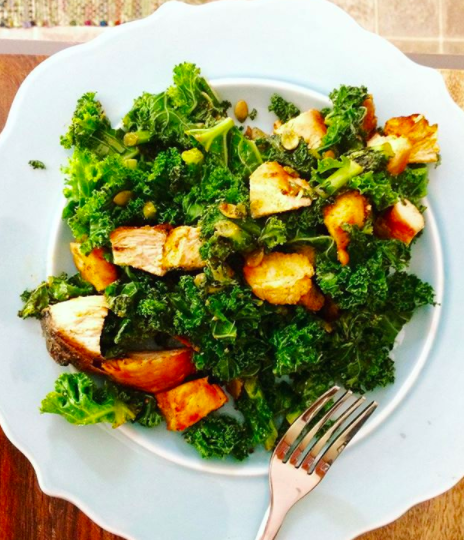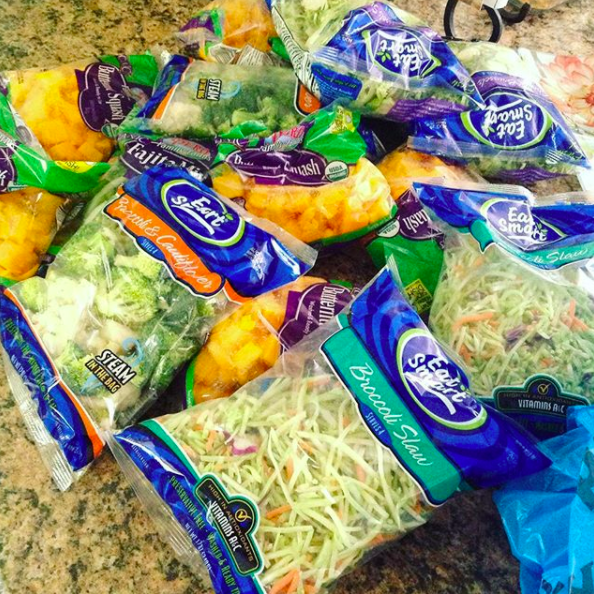One of the biggest hindrances to taking the leap of faith into the world of healthy eating and living is monetary consideration. I began my journey into the “clean eating” lifestyle during my (“poor”) college student days. Always a conscious eater, on a limited budget it was sometimes difficult to pass up midnight pizza or Ramen noodles. Since beginning this lifestyle years ago, I’ve navigated my shopping ventures in such a way to avoid costly grocery store trips. The following tips are to help kick-start your new grocery routine.
Tip #1 – Buy In Bulk, Especially Protein
Protein freezes well. Every time you grocery shop, check the meat and chicken section. Buy-one-get-one, store discounts, and near-expiration packages offer excellent opportunities for stocking the freezer. If your freezer is stocked, you never have an excuse for not having a healthy alternative in your house!
Tip #2 – Avoid ALL Processed Foods
Of course, there is the physiological reasoning behind why we should avoid processed “foods”; for the most part these are not real food. Now, technically a package of chicken is “processed”, but think crackers, cookies, pastas, snacks. There is also a monetary reason – here are some examples of money saving from eliminating such products:
- One bag of chips per week: $192/year
- One half gallon of ice cream per week: $288/year
- One fast food meal per week: $384/year
- One loaf of bread per week: $144/year
- One box of cereal per week: $240/year
- One soda (or sweet tea!) per day: $548/year
Tip #3 – Factor in “Eating Out”
If you are choosing to take the step to put your health first, perhaps it’s time to take a moment to evaluate how much money you spend eating out. Now this can be the semi-weekly lunch with a co-worker, or a Friday night out- either way it costs money to have someone else cook your food. I’m all about going out and having a good time, and socializing is important, but determining how to cut part of your “restaurant” budget and turn that over to your grocery budget can be helpful. A $15 meal can buy 3 pounds of chicken…
Tip #4 – Frozen Vegetables
Flash frozen vegetables pack the same nutritional punch as their fresh counterparts. Granted, fresh sometimes tastes a tad better, but with the right spices, frozen vegetables are delicious! A one pound bag of broccoli is 30-40% less expensive than a fresh bunch.
Tip #5 – Frozen Fruit (Smoothies)
The same holds true for fruit. Where green juices remove essential pieces of fruit and are low on nutritional value, smoothies of any sort hold on to the whole fruit. All micronutrients work together for optimal nutritional value. From a convenience perspective, a smoothie paired with a few boiled eggs is a quick and easy breakfast choice.
[thrive_leads id=’8426′]
Tip #6 – Supplement
Dried beans are a low-cost addition to any meal and can make your meat last longer!
Tip #7 – Unusual Proteins
I almost always carry a packet of tuna or some jerky in my bag. Now, tuna straight out of a package may not be the tastiest way to enjoy lunch, however at under $1 each, this is a cost-worthy alternative. Packaged salmon works well too. I encourage this use only occasionally, but as a once in a while swap it is worth the cost benefit.
Sardines are another example of a cost-effective, though unusual protein source. Add these to some broccoli, salads, etc. for a great kick of protein (over 20 grams) and a huge supply of omega-3 fatty acids. They will also curb salt cravings.
Tip #8 – Plan
Having a plan for your week is essential for nutrition and budget success. Plan a shopping list, look for sales. Know what you are purchasing before you reach the grocery store.
Tip #9 – Read the Fine Print
What I am referring to here is the “fine print” on grocery store shelves indicating the per ounce price equivalent. Oftentimes what’s on sale isn’t really “on sale”. Be sure to read your shelving!
Tip #10 – Read Your Labels
Know what you are buying. Choose items with a higher nutritional punch. We love calories when they’re nutrient dense! Calories that pack a high nutritional content are most worthwhile. Nuts satiate much better than chips, therefore are a much better nutritional and cost effective choice.
[thrive_leads id=’8361′]

